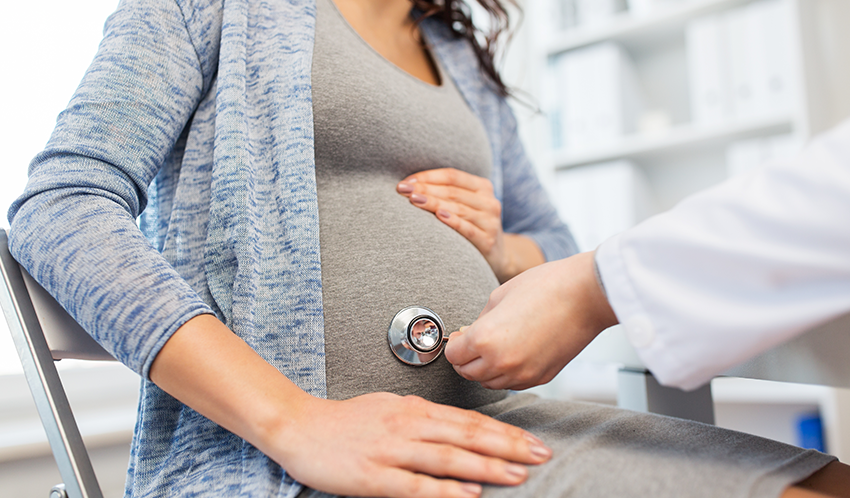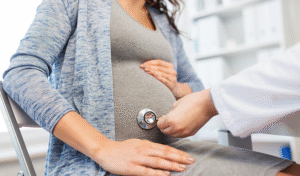Menopause, a natural biological process, signifies the conclusion of a woman’s reproductive years. It typically occurs in women aged the late 40s to early 50s, but the exact timing can vary. During menopause, the ovaries cease monthly periods (menstruation) and reduce the production of pivotal hormones, mainly estrogen and progesterone.
Navigating menopause
Menopause, my dear women, is an ordinary facet of the ageing process and not a medical condition. Nevertheless, it can bring about noteworthy changes in your life, warranting medical attention for symptom alleviation in certain instances. Some women opt for hormone replacement therapy (HRT) to mitigate symptoms and reduce the risk of health issues associated with diminished estrogen levels, such as osteoporosis.
Remember, ladies, our body goes through transformative phases, and this is one of them. Don’t hesitate to contact your friendly gynaecologist for guidance and support through this remarkable journey.
Spotting the small changes in menopause
Before managing menopause, we must identify the changes happening within our bodies. Some subtle signs you should look out for are:
- Irregular periods: As women approach menopause, their menstrual cycles often become irregular. Periods may become lighter, heavier, more frequent, or less frequent before stopping altogether.
- Hot flashes: Hot flashes are sudden, intense feelings of warmth, often accompanied by flushing of the face and sweating. These can occur day or night and may disrupt sleep.
- Night sweats: Night sweats are episodes of excessive sweating during sleep, often accompanied by hot flashes. They can lead to disturbed sleep and fatigue.
- Vaginal changes: Menopause can lead to vaginal dryness, itching, and discomfort. These changes can also result in painful intercourse (dyspareunia).
- Mood swings: Hormonal fluctuations can contribute to mood swings, irritability, and changes in emotional well being. Some women may experience symptoms of anxiety or depression.
- Sleep disturbances: Hormonal changes and night sweats can disrupt sleep patterns, leading to insomnia or poor-quality sleep.
- Fatigue: The combination of sleep disturbances and hormonal changes can result in fatigue and reduced energy levels.
- Changes in libido: Some women may experience decreased sexual desire and overall interest in sexual activity.
- Weight gain: Many women notice changes in their body composition and may have difficulty maintaining weight during menopause.
- Cognitive changes: Some women report experiencing memory lapses or difficulties with concentration during menopause, often referred to as “brain fog”.
- Urinary Symptoms: Menopause can increase the risk of urinary tract infections and incontinence.
- Bone health: Estrogen helps maintain bone density, and its decline during menopause can increase the risk of osteoporosis, a condition characterised by weakened and brittle bones.
Lifestyle changes to help menopause and perimenopause
Menopause and perimenopause can bring about numerous changes in a woman’s body and lifestyle. Hot flashes, night sweats, mood swings, and weight gain are just some common symptoms. However, lifestyle changes can help ease these symptoms and provide some much-needed relief. From eating a balanced diet to getting regular exercise, there are several changes women can make to improve their overall health and well being during this transition. As experts in women’s health, we’ve compiled some tips and tricks to help you navigate this new chapter in your life with confidence and ease.
Do’s:
- Get plenty of rest, including keeping to regular sleep routines,
- Eat a healthy diet,
- Have calcium-rich food like milk, yoghurt and kale to keep bones healthy,
- Exercise regularly, try including weight bearing activities where your feet and legs support your weight like walking, running or dancing,
- Do relaxing things like yoga, tai chi or meditation,
- Talk to other people going through the same thing, like family, friends or colleagues,
- Talk to a doctor before taking herbal supplements or complementary medicines.
Don’ts:
- Do not smoke,
- Do not drink more than the recommended alcohol limit.
Managing mood swings
It is common to have mood swings, low mood and anxiety around the time of the menopause and perimenopause.
Rest and exercise. Your body needs a good amount of sleep (Minimum 8 hours) to realign to the changes in the body. Allow yourself to adapt to the hormonal changes. There is no way to rush this process. However, we can only make it easier. Here is where exercise plays a role. A daily hit of Endorphins and Dopamine (feel-good hormones) are necessary to keep you in a good mood and good metabolism.
Mindfulness and relaxing activities are your best to bring in that mind body balance. Opt for yoga, Pilates or any other activity that grounds you. If you are experiencing harsh symptoms where rest and exercise are inadequate, we highly recommend Cognitive behavioural therapy (CBT). It is a type of talking therapy that can help with a low mood and feelings of anxiety. Along with a good diet plan and consistent active routine, you can glide through this period with ease.
Find relief from hot flushes and night sweats
- Consider keeping your bedroom pleasantly cool during the night for a more restful sleep.
- Take a cool shower, use a fan or have a cold drink.
- Try to reduce your stress level.
- Consider minimising potential triggers in your daily routine. Opt for milder food choices while avoiding spicy dishes, limit your caffeine intake, enjoy warm beverages instead of hot ones, abstain from smoking and alcohol.
- Exercise regularly. Consistent physical activity is beneficial.
- Lose weight if you’re overweight.
Strengthen your bones
- Exercise regularly, including weight-bearing exercises, where your feet and legs support your weight (like walking, running or dancing) and resistance exercises (for example, using weights).
- Eat a healthy diet that includes plenty of fruit, vegetables and sources of calcium, such as milk, yoghurt and kale.
- Enhance your bone health by incorporating some sunlight into your day, as it stimulates the production of vitamin D, essential for maintaining strong and healthy bones.
- Consider supplementing your daily routine with vitamin D to support your overall health and well-being.
- Stop smoking and cut down on alcohol.
Treatment for menopause and perimenopause
The primary medical treatment for menopause and perimenopause symptoms is hormone replacement therapy (HRT), which replaces the hormones at low levels.
- Hormone replacement therapy (HRT)
HRT is a safe and effective treatment for most going through menopause and perimenopause. HRT involves using oestrogen to replace your body’s own levels around the time of menopause. There are different types and doses of HRT. Using the right dose and type usually means your symptoms improve.Oestrogen comes as:
- Skin patches
- A gel or spray to be topically applied on the skin
- Implants
- Tablets
Suppose you have not undergone a Hysterectomy (Surgical removal of the uterus) and still have a womb (uterus). In that case, you need to take progesterone to protect your womb lining from the effects of oestrogen. Taking oestrogen and progesterone is called combined HRT.
Progesterone comes as:
- Patches, as part of a combined patch with oestrogen
- IUS (intrauterine system, or coil)
- Tablets
- Testosterone gel for reduced sex drive
If you experience a decrease in libido due to menopause, and if hormone replacement therapy does not yield the desired results, you might want to consider discussing the possibility of incorporating testosterone as a potential option with your healthcare provider. The ovaries produce testosterone and supplements can be prescribed in and around menopause. - Oestrogen for vaginal dryness and discomfort
During menopause and perimenopause, it is common for women to experience vaginal dryness, discomfort, or itching. To address these symptoms, vaginal estrogen treatments can be used. It is important to note that these treatments work locally and do not enter the bloodstream, focusing solely on the area where they are applied. The advantage is that you can continue using these treatments long-term if needed. However, it is essential to be aware that discontinuing their use may cause symptoms to reappear. - Non-hormone medicines
There are non-hormone treatments if your symptoms have a big impact on your life and you cannot, or choose not to, have HRT.
Hot flushes and night sweats
These include:
- Clonidine, a blood pressure medicine
- Gabapentin, an epilepsy medicine
Mood symptoms
Antidepressants can help with mood symptoms if you’ve been diagnosed with depression or anxiety.
Cognitive behavioural therapy (CBT)
Cognitive behavioural therapy (CBT) is a talking therapy which can help with:
- low mood and anxiety caused by menopause and perimenopause
- some physical symptoms like hot flushes and joint pain
Complementary and alternative therapies
The use of compounded bioidentical hormones, in the form of “herbal” or “natural hormones” offered in private clinics as hormone replacement therapy (HRT), is not recommended due to the lack of sufficient evidence regarding their efficacy and safety. The limited research on these treatments makes it challenging to determine their effectiveness and potential risks. Therefore, it is advised to rely on established, evidence-based HRT options and consult a qualified healthcare professional for personalised guidance.
How we can help you through this transition
At Helena Taylor Clinic we believe in helping women manage the physical and emotional challenges often accompanying menopause.
- Diagnosis and evaluation: Our team of OB-GYNs can confirm the onset of menopause by reviewing a woman’s medical history, assessing her symptoms, and conducting tests like blood tests to measure hormone levels (particularly estrogen and FSH levels). This helps in establishing the stage of menopause and ruling out other medical conditions that may mimic menopausal symptoms.
- Education: The team can provide comprehensive education about the menopausal process, including the physical and emotional changes women can expect. They can answer questions, dispel myths, and offer resources for further information.
- Symptom management: Our experts can help manage and alleviate menopausal symptoms. Depending on the severity and type of symptoms, they may recommend various treatments and interventions, including:
- Hormone Replacement Therapy (HRT): For women with severe hot flashes, night sweats, and vaginal dryness, OB-GYNs can discuss the risks and benefits of HRT, which involves estrogen and, in some cases, progestin or progesterone to replace declining hormone levels.
- Prescription medications: The gynaecologists can prescribe medications such as antidepressants or anti-seizure drugs to help manage mood swings and hot flashes.
- Vaginal estrogen: Low-dose vaginal estrogen therapy can be recommended to alleviate vaginal dryness and discomfort.
- Lifestyle modifications: We can advise on lifestyle changes, such as diet and exercise, to help mitigate certain menopausal symptoms.
- Bone health: We can help monitor and assess bone health, as the decline in estrogen levels during menopause can increase the risk of osteoporosis. They may recommend bone density testing and discuss preventive measures, including calcium and Vitamin-D supplementation.
- Cardiovascular health: Our team of experts can discuss the impact of menopause on heart health and recommend strategies for maintaining cardiovascular well-being.
- Regular checkups: We encourage women to continue with regular gynaecological checkups and screenings to monitor their health and detect potential issues early.
- Contraception: Our specialists can discuss contraception options for women still sexually active and at risk of unintended pregnancy, as menopause does not necessarily signify the end of fertility until a certain period has passed without menstruation.
- Emotional support: Many women experience emotional changes during menopause, including mood swings and anxiety. OB-GYNs can provide referrals to mental health professionals or counsellors if needed.
- Collaboration: Our team often collaborates with other healthcare providers, such as primary care physicians, endocrinologists, or mental health specialists, to address the diverse needs of women going through menopause.
- Shared decision-making: We involve women in shared decision-making regarding treatment options, helping them choose the best approach based on their individual preferences and risk factors.
References
https://bmcwomenshealth.biomedcentral.com/articles/10.1186/1472-6874-8-22
https://www.sciencedirect.com/science/article/abs/pii/S0378512203003876
https://www.tandfonline.com/doi/abs/10.1080/13697130802226866













